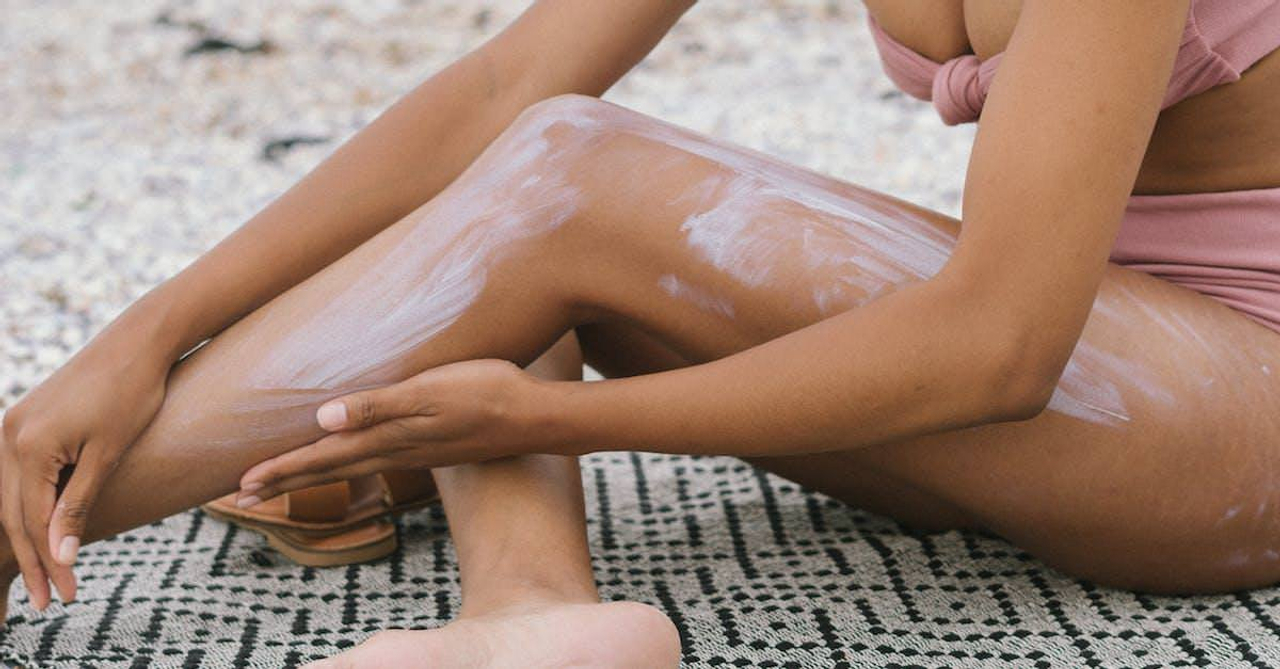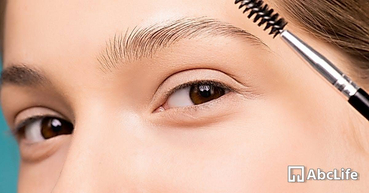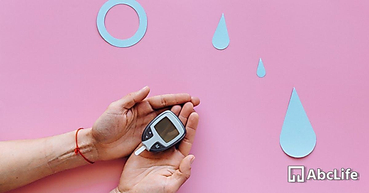Sunscreen is an absolute must if you want to keep your skin looking radiant and youthful. Premature aging, fine lines, wrinkles, sunburn, and even skin cancer can result from prolonged exposure to the sun's ultraviolet (UV) rays. In this Complete Guide to Sunscreen, we'll go over everything you need to know to protect your skin from the sun, from the various sunscreen options available to choosing the appropriate SPF and applying sunscreen properly. This guide will help you protect your skin from the sun and keep it looking fresh and young whether you're headed to the beach or just out and about town. Let's jump right in and find out everything we can about sun safety!
Understanding the Effects of UV Rays on Your Skin

Ultraviolet (UV) rays are a type of solar radiation. Sunlight has health benefits when used moderately, but too much time in the sun can lead to skin cancer. UVA and UVB rays are the two types of harmful ultraviolet radiation.
The long-term effects of UVA rays, such as premature aging and skin cancer, are not to be underestimated. However, ultraviolet B (UVB) rays are linked to sunburn and even skin cancer. Skin discoloration, wrinkles, and other signs of aging can be brought on by exposure to both UVA and UVB rays.
Sunscreen, protective clothing, and limiting time spent outdoors are all great ways to ward off sun damage to your skin. Applying sunscreen with an SPF of at least 30 every two hours is recommended for optimal skin protection while outdoors. If you know how your skin reacts to UV light, you can take precautions to keep it healthy and looking great.
Different Types of Sunscreens and Their Benefits
There is a wide variety of sunscreens available, each with its own special advantages. Getting the right kind will give you the most defense against the sun's damaging rays. Some of the most popular sunscreens and the protection they offer are as follows:
1. Chemical Sunscreens
Chemical sunscreens block harmful ultraviolet (UV) radiation before it reaches the skin. These sunscreens are widely used because they are convenient and comfortable to use on a daily basis. They can shield you from UVA and UVB rays, a rare combination. Some people, however, may have sensitivities to the chemicals in chemical sunscreens and must reapply it every two hours.
2. Physical Sunscreens
When applied to the skin, physical sunscreens form a barrier that blocks harmful ultraviolet radiation. Zinc oxide and titanium dioxide are among the minerals present. These sunscreens are safer for use by those prone to skin irritation and allergic reactions. They are impervious to water and offer continuous defense against the sun's rays. Physical sunscreens are more effective than chemical ones, but they are typically heavier and thicker, and can leave a white cast on the skin.
3. Combination Sunscreens
Sunscreens that combine chemical and physical filters are the most effective way to shield your skin from the sun's rays. They are more lightweight than pure physical sunscreens while still providing protection from UVA and UVB rays. Because of their matte finish and ability to reduce oil production, they are great for people with oily or acne-prone skin. Certain ingredients, such as alcohol, can be irritating, so they may not be appropriate for people with dry or sensitive skin.
In conclusion, if you want to protect your skin from the sun's harmful rays, you need to use the right kind of sunscreen. Remember to reapply your sunscreen every two hours no matter what kind you use.
How to Find the Best Sunscreen for Your Skin Type and SPF Level
Protecting your skin from the sun's harmful rays relies on using a sunscreen with an appropriate sun protection factor (SPF). UVA and UVB rays are both harmful to the skin. Sunburns and skin cancer are the results of UVB rays, while the deeper-penetrating UVA rays are responsible for premature aging and skin cancer. You should find a sunscreen with a high SPF that also blocks UVA rays in addition to UVB rays.
Factors to Consider while Choosing a Sunscreen:
SPF:Sunscreen with at least 30 SPF should be used daily. A higher SPF will better protect your skin from the sun if you plan on spending more time outside.
Skin Type:Pick a sunscreen that works for your skin, whether it's oily, dry, or extra-sensitive. Choose oil-free, lightweight, and non-comedogenic formulas. Select a sunscreen that also moisturizes for dry skin. Select a hypoallergenic sunscreen if you suffer from sensitive skin.
Water Resistance:Select a sunscreen that is water-resistant if you anticipate being in the water or sweating heavily.
Texture:Sunscreens can be applied in a variety of forms, including cream, lotion, gel, and spray. Pick a feel that works well with your skin and preferences.
Ingredients:To protect yourself from both UVA and UVB rays, look for a sunscreen with zinc oxide, titanium dioxide, or avobenzone.
Selecting a high-quality sunscreen and making it a regular part of your skincare routine can go a long way toward preventing skin cancer and early aging caused by sun exposure. When you're outside, your skin needs extra protection, so wear a hat and sunglasses and reapply sunscreen every two hours.
The Proper Way to Apply Sunscreen for Optimal Safety
In order to prevent sunburn, early skin aging, and even skin cancer, it is important to take precautions when spending time in the sun. Sunscreen can protect your skin from the sun, but only if you apply it correctly. If you want to stay safe in the sun, follow these guidelines for applying sunscreen.
Choose the Right Sunscreen
Make sure you're using the right sunscreen before heading outside. Try to find a sunscreen that offers protection from both UVA and UVB rays (broad-spectrum). The sun protection factor (SPF) must be at least 30. Before purchasing sunscreen, think about your skin type. If you plan on swimming or sweating heavily, you may want to use a sunscreen that is water-resistant.
Apply Sunscreen Liberally
You should never use too little sunscreen. A full body application requires about as much sunscreen as would fill a shot glass. Sunscreen should be applied at least 20 minutes before going outside so that it has time to be absorbed by the skin. Sunscreen should be reapplied every two hours and after swimming or perspiring heavily.
Don't Forget Vulnerable Areas
Lips, ears, the back of your hands, your feet, and (if you're bald) your scalp should all get some sunscreen love, too. Lips should be protected from the sun by applying a lip balm or lipstick with SPF 15 or higher.
If you use sunscreen properly, you can spend time outdoors without worrying about damaging your skin. You can now relax and take in the sun without worry thanks to the advice given.
Advice for Preserving Your Skin and Reducing Sun Exposure
Sunlight is a healthy way to get vitamin D, but too much of a good thing can cause wrinkles, sagging skin, and even skin cancer. If you spend a lot of time outside, it's crucial that you know how to shield your skin from the sun and always do so. Here are some ways to avoid sun damage and keep your skin healthy:
Wear Proper Clothing
Wearing looser clothing that covers as much skin as possible is a great way to avoid sun damage. You can shield your eyes and face from the sun by donning a pair of sunglasses and a hat with a wide brim. For maximum protection from the sun, wear dark, tightly woven fabrics.
Apply Sunscreen Regularly
Twenty minutes before going outside, put on sunscreen with an SPF of at least 30. In the event of swimming or heavy perspiration, reapply every two hours. Sunscreen should be applied everywhere, including the lips, ears, neck, and soles of the feet. Wear a sunscreen that won't wash off or become sticky if you'll be out in the sun for a while.
Avoid Peak Sunlight Hours
If you can, avoid going outside between the hours of 10 a.m. and 4 p.m., when the sun is at its strongest. If you must be outside during this time, make sure to find someplace cool to rest, carry an umbrella, or dress in layers to protect yourself from the sun.
Stay Hydrated
Sunlight causes water loss through perspiration. Keep yourself well-hydrated by consuming large amounts of water. In order to prevent sun damage, one of the best things you can do for your skin is to drink plenty of water.
If you follow these guidelines, you can spend time in the sun without risking damage to your skin. One of the most crucial things you can do to keep your skin looking healthy and beautiful is to take care of it.
Applying Sunscreen to Your Face Every Morning
Including a sunblock in your routine is a must if you care about your skin. Sun damage, premature aging, and skin cancer are all possible outcomes of prolonged exposure to the sun's ultraviolet (UV) rays. Including sun protection in your regular skincare routine is an easy way to keep your skin looking fresh and young.
Get a high-quality sunscreen that is appropriate for your skin type first. Select a broad-spectrum sunscreen with an SPF of at least 30 and apply it liberally 15 minutes before going outside into the sun. If you will be out in the sun for more than two hours, reapply the sunscreen.
Second, you should think about using products that have natural sun protection agents in them. These include antioxidants, vitamins C and E, and Green Tea extracts. These components repair damaged skin cells, reduce inflammation, and shield the skin from harmful UV rays on a cellular level.
Third, when you go outside, cover up, wear a hat, and put on some sunglasses to further protect your skin. When possible, seek shade and stay out of the sun between 10 a.m. and 4 p.m.
Sunscreen should be part of everyone's daily skincare routine because it not only prevents sun damage but also keeps skin looking fresh and young for longer. Keep your skin healthy for life by always wearing sun protection.
- For radiant skin, why is sun protection so crucial?UV rays from the sun can lead to premature aging, wrinkles, age spots, and even skin cancer, so it's crucial that you protect your skin from the sun. You can keep your skin looking young and healthy for a long time by protecting it from the sun's harmful rays.
- What are the different types of sun protection?Physical and chemical sunscreens offer different levels of defense against the sun. Sunscreens can either be chemical, which absorbs the sun's rays and turns them into heat, or physical, which reflects and scatters them. Physical sunscreens are generally considered safer and more natural, but both types can effectively protect your skin.
- What should you look for in a good sunscreen, and why?Zinc oxide and titanium dioxide are the two most effective ingredients in sunscreens. These broad-spectrum physical sunscreens shield from both UVA and UVB radiation. Additionally, they do not aggravate or trigger allergies in people with sensitive skin.
- How often should I reapply sunscreen?Sunscreen needs to be reapplied every two hours or after 80 minutes in the water or sweating heavily. Sunscreen wears off over time and can be easily removed by sweating or getting wet. If you reapply every two hours, you'll be protected all day long.
- Is there anything else I can do to shield my skin from the sun?Wearing protective clothing like long-sleeved shirts, pants, and hats, hiding from the sun during the hottest parts of the day, and using antioxidant-rich skincare products can all help to keep your skin safe from the sun.
- Can I still get a tan while using sunscreen?The use of sunscreen does not prevent tanning. However, protecting yourself from the sun with sunscreen can lessen your chances of getting skin cancer and aging prematurely. Avoiding tanning entirely requires taking precautions, such as staying indoors or donning sunblock.
- Who should use sun protection?No matter your skin tone or type, you need to protect yourself from the sun. All skin types are vulnerable to the harmful effects of ultraviolet (UV) radiation, which include premature aging and cancer of the skin. People with fair skin, a history of skin cancer in their family, or a compromised immune system should take extra precautions to avoid sun exposure.











